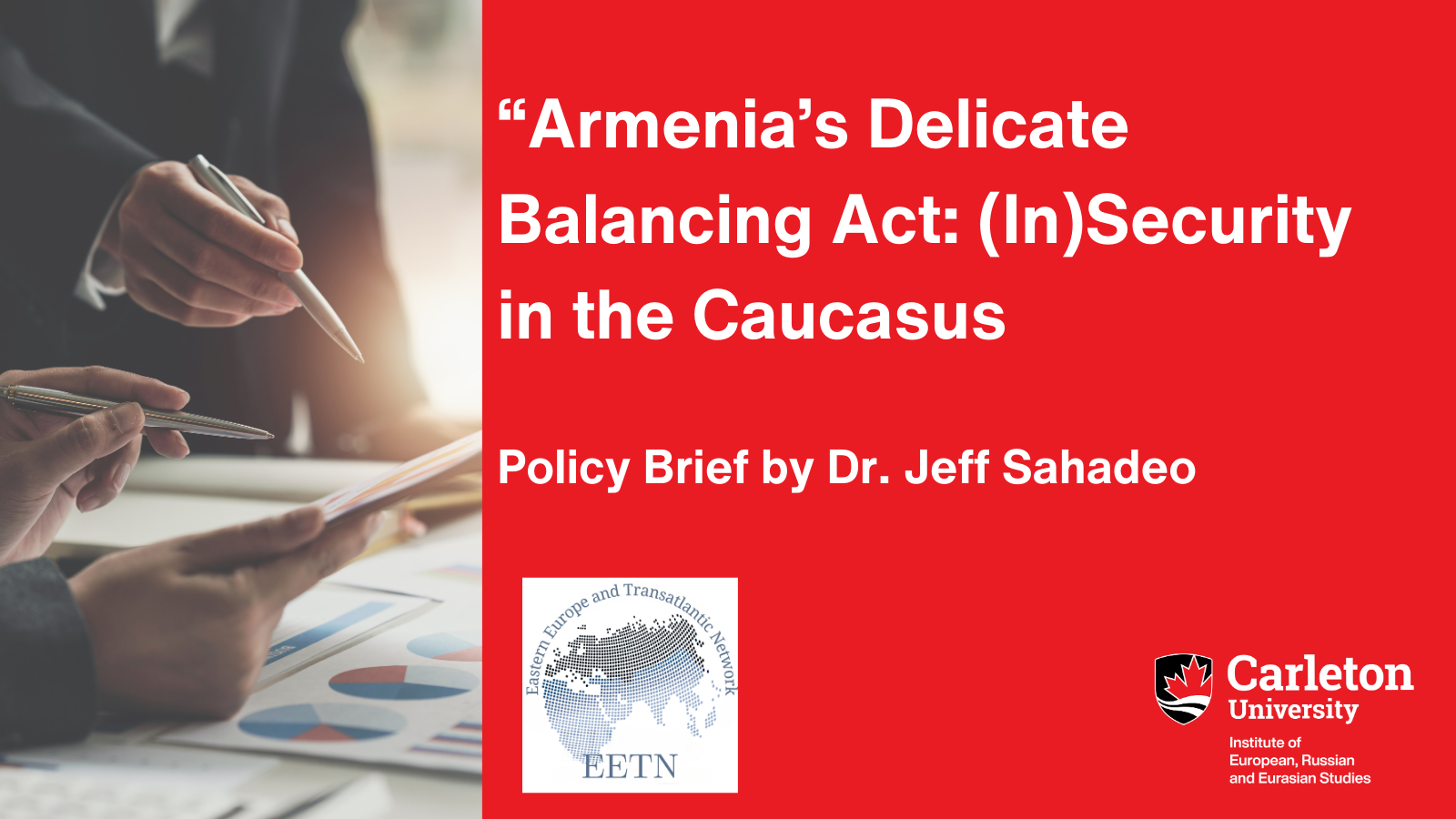
EURUS Professor Jeff Sahadeo has published a policy brief entitled “Armenia’s Delicate Balancing Act: (In)Security in the Caucasus” through the Eastern European and Transatlantic Network (EETN). The full policy brief can be found here.
Summary: On December 4, Prime Minister Nicol Pashinyan claimed that Armenia now considers itself outside of the Russian-led mutual defence alliance, the Collective Security Treaty Organization (CSTO). His words continue Armenia’s trajectory towards a multivector foreign and defence policy. Armenia looks increasingly to partners such as India, France and the United States. The country remains burdened, however, by Azerbaijan’s occupation of Nagorno-Karabakh (Artsakh) and its continued claims on Armenian territory. Russia, Türkiye and Iran, all significantly more powerful states, hold their own regional interests. Armenia’s location and efforts to maintain a fragile liberal democracy make it an important pivot point for regional stability. With its large Armenian diaspora, its new embassy in Yerevan and its relationships with countries involved in Armenia, Canada should play an important role in Armenian security. Stéphane Dion’s visit to Armenia and meeting with Prime Minister Pashinyan on December 6 is a strong step in signaling Canada’s support.
About the EETN:
The Eastern European and Transnational Network (EETN) is a multidisciplinary research initiative dedicated to understanding the complex political, economic, and societal shifts in Europe, Eurasia, and the Arctic, particularly in the context of Russia’s full-scale invasion of Ukraine. EETN aims to provide critical Canadian perspectives on these issues and offer policy-relevant recommendations to inform Canadian foreign and defense policy and the Canadian public at large.
The network engages with regional partners, policymakers, and experts to produce high-quality research and foster a new generation of scholars and practitioners. EETN is committed to promoting diversity, inclusivity, and interdisciplinary collaboration to ensure a comprehensive and nuanced understanding of the region.